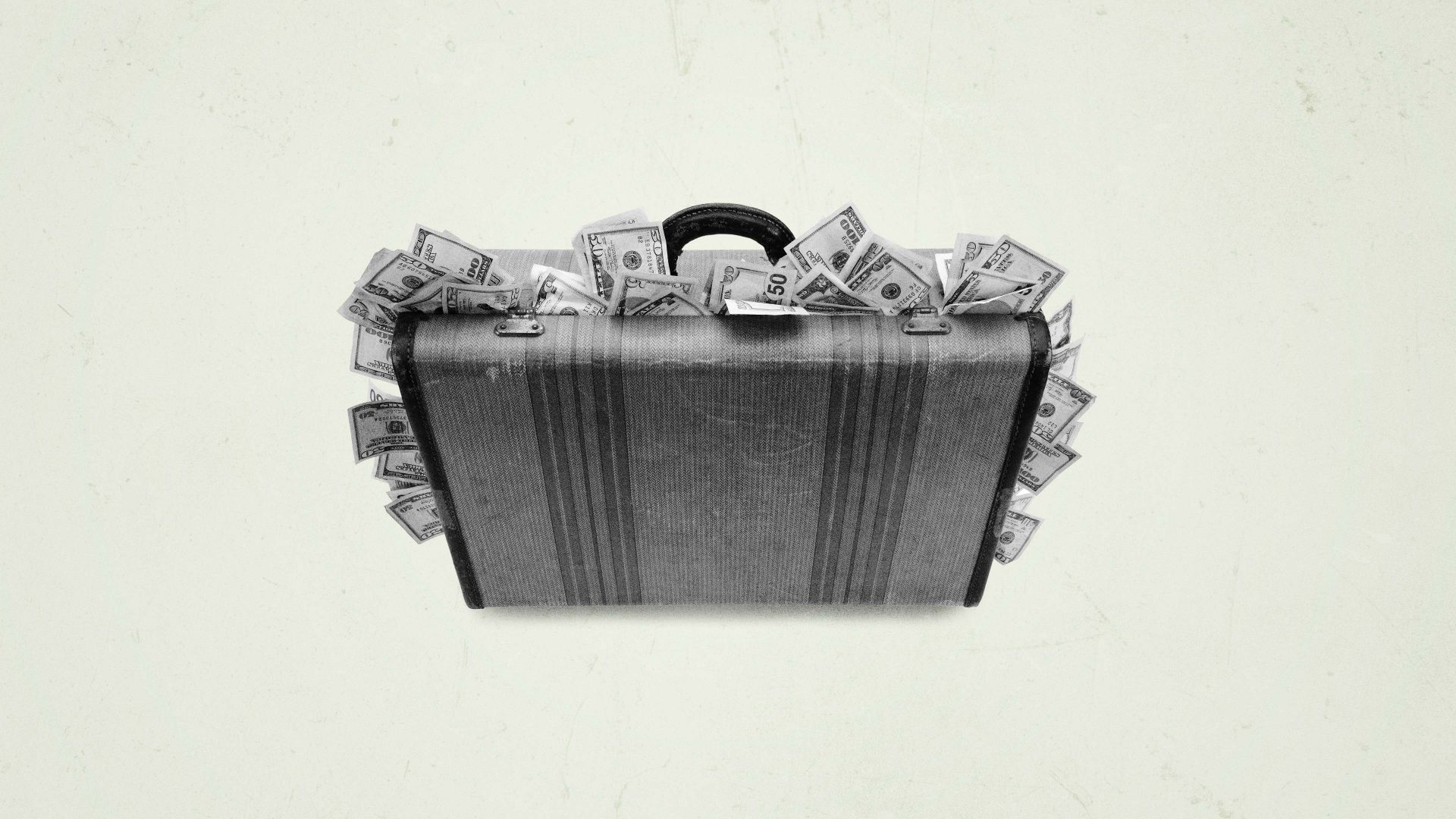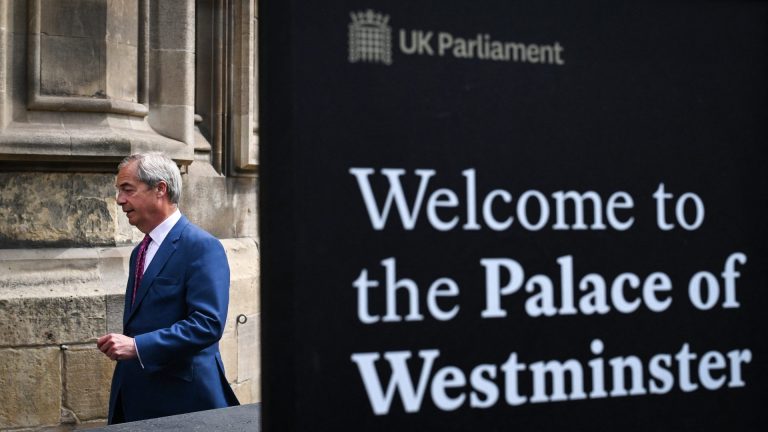“So, you’re off? You’re going, are you?” The words hung in the air for a second before the answer came back that yes, that’s what he – and indeed many other wealthy people like him – planned to do if Labour increased their taxes. Then he was interrupted with another question: “But are you really going?”
This was a year or so ago at one of the fabled London dinner parties where Labour’s shadow front team were busy reassuring business leaders about how Keir Starmer and Rachel Reeves would provide a stable environment for long-term investment. It had all been friendly enough until an executive from a private equity firm warned how he was ready to move to Milan or somewhere else abroad if a loophole benefitting his corner of financial services was closed.
It’s not often that the metaphor “his blood is up” takes a literal form, but on the other side of the table, a flush rose steadily from under the collar of an individual who is now a senior minister. It might not have been red-raw socialism, but it was definitely pinkish in hue.
And right now, the questions asked that night are more pertinent than ever. Although we don’t know exactly what will be in the first Labour Budget for 14 years, it would still be a shock if some extremely rich people are not outraged next Wednesday.
There have been heavy hints over the past few weeks that the list of losers will not be confined to private equity bosses and so-called “non-dom” tax avoiders who have been lobbying against plans to tighten their gilt-edged loopholes. If media speculation is correct, they will be joined by at least some of those who have previously paid less tax on inheriting or monetising wealth through “capital gains” than people do when earning their money from work.
All of which has triggered multiple warnings that the “broadest shoulders” will be used to haul big bags of money out of the country altogether, rather than to bear a fairer share of the load needed to rebuild it. Right wing newspapers froth over findings from right wing think tanks predicting the number of UK millionaires will “fall by a fifth”, or that there will be such an exodus abroad that, without rich people to tax, the Treasury’s revenues will in fact decrease by billions of pounds rather than rise.
To lots of Labour’s old lags, it’s been reminiscent of the 1990s when threats to leave made by rich celebrities largely came to nothing. The TV magician Paul Daniels, boxer Frank Bruno and snooker player Stephen Hendry all stayed in the UK despite apparently promising to emigrate if Tony Blair came to power.
The popstar Phil Collins seemed to have followed through on a threat to quit Britain over tax when he moved to Switzerland, but later insisted that he had only left because he wanted to spend more time on the shores of Lake Geneva with his wife (who then left him and moved to Miami).
It prompted Noel Gallagher to urge people to vote Labour in 2005, saying: “If you don’t and the Tories get in, Phil Collins is threatening to come back and live here. And let’s face it, none of us want that.” Even the alleged comedian Jim Davidson, who had fled the then Labour government a year earlier, eventually returned from Dubai after being made bankrupt for unpaid tax bills.
It turns out that rich and famous people are not that different from the rest of our species, 96% of whom live in the country where they were born. And such “remainers” include, well, Remainers. For all the prophecies that lots of them would leave Britain because of Brexit, few did, perhaps because it’s now harder to uproot and live elsewhere.
Although the novelist Rachel Cusk made it out to Paris where she still lives and the actor Emma Thompson got herself made a citizen of Venice, the latter returned to what she calls this “cake-filled misery-laden grey old island” when Covid struck. As for Nigel Farage, who once said he’d to “go and live abroad” if Brexit turned out to be a disaster, he still seems to be a permanent resident on our TV screens and inside the heads of Conservative leadership candidates, if not his Clacton constituency.
At this point, the kind of tax adviser who writes articles in the Daily Telegraph will tell you that Charlie Mullins, the Reform-supporting plumbing magnate who’s just announced he’s moving to live in Spain and Dubai, is untypical because many of the multi-millionaires getting ready to leave are not even British. Instead, they’re part of that rootless set of super-rich cosmopolitans once described by Theresa May as “citizens of nowhere” who move their money fast and rarely settle.
For every Philip Green who has been accused of dividing his time between “asset-stripping” businesses from a London hotel and self-imposed exile in the tax haven of Monaco, there are said to be dozens of foreign tech entrepreneurs, bankers, sheiks and oligarchs who only came here because they would pay less tax than those to whom bits of their wealth supposedly “trickles down”.
A much-quoted if largely unscientific survey by Oxford Economics (a commercial consultancy rather than an academic organisation based at the university) suggests so many “non-doms” are planning to take flight that public finances will be left worse off. Another report, this time by Henley & Partners which claimed the UK is expected to see a net loss of 9,500 millionaires, has already been exposed as unrepresentative by the admirable Tim Harford at BBC Radio 4’s More or Less.
Even so, the Treasury is understood to have taken such warnings seriously enough to rejig planned tax reforms so that they don’t damage its revenues or the investment needed for economic growth. “We can’t ignore them entirely,” one source told me, “and we won’t do anything that costs us money.”
But there are lots of reasons why more rich people might take their wealth or themselves out of this country which have nothing to do with the Budget. These include Brexit, sanctions on Russians, bad weather and, apparently, fear of crime.
More importantly, there is proper academic research showing previous cuts in tax relief for the richest succeeded in raising revenues. A study by Arun Advani, David Burgherr and Andy Summers found that barely one in 20 non-doms left Britain, and these were the ones paying the least tax.
Another piece of research by the LSE into the ultra-wealthy shows they also have good cause to stay. The administrative and familial upheaval caused by moving is substantial, and people tend to develop strong attachments to the place where they live.
As well as this, there’s also the “reputational risk” of being seen as a tax avoider. The report added that some of those surveyed “expressed a snobbery about tax-advantageous destinations as boring and culturally barren”.
Too right. As has been pointed out before, what sort of mega-rich tax avoider wants to move to the Channel Islands where speed limits for all cars, including their Ferraris, is set at 40mph? Why would you spend your last decades on earth wandering around the gigantic airport shopping malls of Dubai? Perhaps Milan sounds more tempting at this time of year, but that’s where they’ve just doubled taxes on the recent influx of billionaires, who have raised property prices so high that the locals are furious.
Will they stay or will they go? We’ll find out this week. Not all wealthy people are rich idiots of course, but those who think their money means they can live anywhere may be about to discover they really have no life at all.
The paperback version of Keir Starmer: the biography by Tom Baldwin, was published 24 October by William Collins









